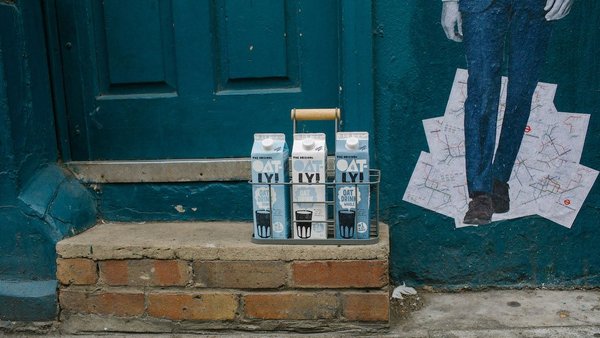Campaign of the Week
Renault targets isolated communities with rentals for job hunters /
Car manufacturer re-works its lease agreements so new-job starters can access a car but only pay for it if and when they pass their probation period
According to a 2021 governmental report, around 20% of the working-age population in France has difficulty getting around due to a lack of transport options. As a result, as many as 28% of people entering the workforce opt out of employment or training.
On 23 March 2024, French car manufacturer Renault launched an initiative to provide solutions for people who live in ‘mobility deserts’ (areas characterised by limited accessibility).
The Cars to Work scheme gives new job starters the opportunity to lease a vehicle long term or with a buyback option, and only have to start paying it off once they pass the job’s probation period. People could choose from the Dacia range (a Romanian auto brand bought by Renault in 1999) or select a used cars through Renew, Renault Group’s global brand for secondhand cars.
The campaign is part of the brand’s wider Caremakers inclusive mobility programme, created in 2012, which offers inclusive schemes to assist low-income individuals in using or buying Renault cars to access employment.
The campaign involved the participation of the brand’s entire network of 50 dealerships across France offering vehicles, and over 300 garages providing affordable repair services.
For financing, the car brand partnered with local organisations specialising in microcredit for low-income people, including Adie, Caisse d'Epargne, Parcours Confiance and Créasol. Renault also worked with inclusive mobility platforms Roole and Le Club Mobilité.
Renault partnered with France Travail, the governmental agency that provides practical and financial aid to job seekers, to promote Cars to Work, with ads broadcast on TV and online.
The campaign was created by Publicis Conseil, Paris.

Contagious Insight /
Unmistakably French / Car accessibility is a big issue in France and Renault has found a way play a positive part in the narrative, positioning itself as a contemporary brand with a clear, relevant mission.
Mobility deserts and the inequalities they create for access to employment are a well-known issue in France. The ‘crisis of mobility’ was even at the heart of the much-discussed series of protests known as the ‘gilets jaunes’ (yellow vests) movement, nicknamed for the safety vests worn by protesters – which sparked a political crisis. The trigger was Macron’s fuel tax, as people in rural France who have to drive long distances daily do go to work couldn’t afford the price increase.
‘As small businesses have been dying in these smaller cities and towns, people find themselves forced to seek jobs elsewhere and to shop even for basic goods in malls,’ French sociologist Alexis Spire explained in the New York Times. ‘They need cars to survive, because regional trains and buses have declined or no longer serve them. Once you begin to unpack the Yellow Vest phenomenon, the uprising is a lot about mobility.’
Allowing those on probation periods to use the vehicles they need to secure a job is a concrete way for Renault to provide genuine utility to French people, while addressing a topic that is close to their hearts. It positions Renault as a brand that not only understands the unique challenges of French people but also provides tangible solutions to address them.
Clever targeting / This campaign expands the brand’s presence in areas where people disproportionately use cars over other means of transportation.
Renault strategically targets those living in isolated regions, where car ownership is not just a convenience but a necessity for daily life. Unlike urban centres like Paris, where alternative modes of transportation may be more prevalent, mobility deserts rely heavily on private vehicles for mobility. By meeting the needs of people in such areas, the car brand resonates among communities where car ownership is not just a luxury but a lifeline. It enhances its visibility directly where its consumer pool mostly resides.
Want more of the same? /
We don’t just write about best-in-class campaigns, interviews and trends. Our Members also receive access to briefings, online training, webinars, live events and much more.







